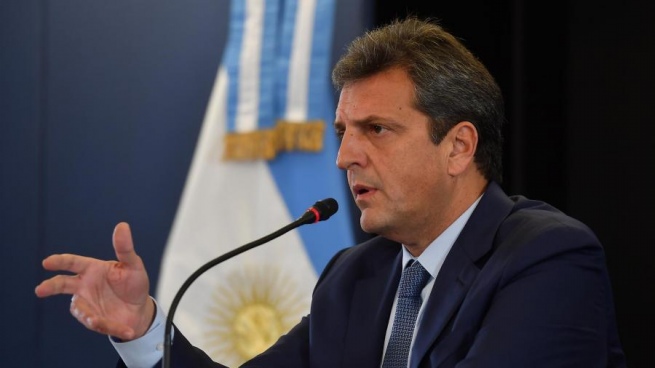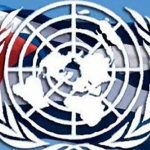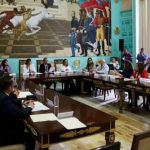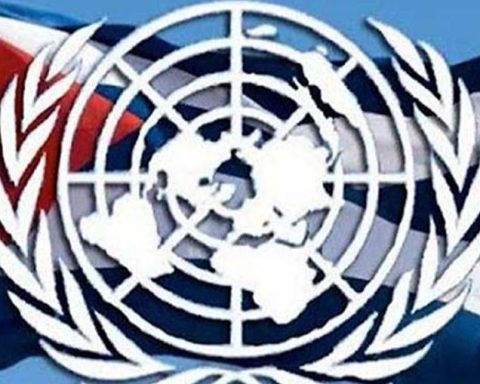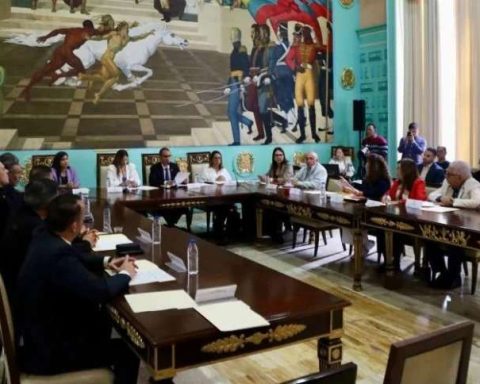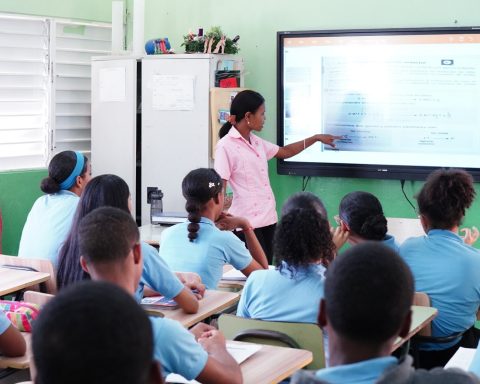The Minister of Economy, Sergio Massa, meets this Monday in Washington with the head of the International Monetary Fund (IMF), Kristalina Georgieva, with the expectation of crowning the result of the work carried out by the technical teams, with an official document from the organism that will later be debated in the directory to an upcoming disbursement of US$ 4,100 million for Argentina.
Based on the scheduled schedule, Massa is scheduled to meet Georgieva at 1:30 p.m. at the IMF headquarterswhere they will hold a talk alone in what will be the first formal meeting as Minister of Economy.
The delegation that will accompany Massa is made up of the head of the Central Bank, Miguel Pesceand the president of Banco Nación, Silvina Batakiswho was sitting with the Agency’s Managing Director a little over a month ago, when she was in charge of the Palacio de Hacienda.
In the morning hours, at 10 in Washington (11 in Argentina), Massa will hold a meeting with David Lipton, Janet Yellen’s right-hand man at the US Treasury, the IMF’s main shareholder. With Lipton, Massa will seek to advance a greater exchange of information from accounts of Argentines not declared in the United States.
Massa, who has been in permanent contact with President Alberto Fernández so far during his stay in the US capital, came here with the message of ratify the agreement with the IMF and in particular the Government’s decision to meet the goal of lowering the deficit to 2.5% of GDP.
“The program has objectives and we have to work to fulfill them, and it is part of the commitments that Argentina assumed as a country; and in some way they put us under the obligation to assume them as a government responsibility,” Massa said during a meeting the day before. with journalists in which Télam was present.
As for the work leading up to the meeting with Georgieva, “the week was good with the IMF”, summed up Massa on the technical work carried out in Washington by “all the areas of the Ministry of Economy with others of the Fund to close the review of the second quarter and build the prospective document of the economy going forward”.
The document – called “staff agreement” – will contain the views of both parties and the eventual recommendation of the agency’s technical team to the Board of Directors to approve the disbursement planned for the country. It will implicitly contain the numbers of the Budget 2023, which will be presented by the Ministry of Economy before Congress on Thursday, September 15.
The fiscal objective of 2.5% of GDP for the current year and the reduction of the deficit to 1.9% of GDP in 2023 “will be maintained”, they anticipated from the minister’s environment.
The technical team of the Ministry of Economy had a hard job during the past week and one of the thorny points was trying to convince the Fund that the goals will be met with the new “fiscal order” measures, even with the deviation found in recent weeks in the fiscal accounts for the second quarter of 2022.
A high-ranking source from the Argentine delegation told Télam that a deviation was found in spending of 10 points with respect to the planned goal (close to 50,000 million pesos), as a result of second-quarter expenses being under-executed, something that was not so clear when Batakis visited Washington last July. The disgust with the team with Martín Guzmán was thus undisguisable.
“I don’t want to think badly, but as he acted, it seems that Guzmán was planning his exit“, Observed a source very close to Massa when reporting on the situation.
On the other hand, the data that arrived from Buenos Aires with the numbers of the first week of operation of the new soybean dollar, which meant more foreign currency both in the state coffers and in those of the reserves, together with the strong support of the IDB, gave a strong impetus to the negotiations as the IMF and World Bank teams were pleasantly “surprised” by the explicit support transmitted by the body led by Mauricio Claver-Carone.
“The support from the IDB was a great goal,” summed up a source very close to Massa, referring to the credits they received from the entities, which include $1,200 freely available for the second half of 2022.
The meetings in the White House and the interests of the United States in food and energy security with the country, beyond the situation of the stabilization of the economy, altered the expectations that Argentina will be able in the medium term to reduce and even overcome the country’s historical external restriction.
These movements automatically raised the floor of accumulated reserves for 2022 and strongly raised expectations that the goal with the Fund will be met.
The positive context was completed with the fact that the Government managed, with these measures, to strongly reduce the exchange rate gap to less than 100% and leave it at 85% for the time being, and calm the country risk, which still remains high above 2330 points.
They remain in Washington Deputy Minister Gabriel Rubinstein; Coordination Secretary, Leonardo Madcur; finance secretary, Eduardo Setti; the vice president of the Central Bank, Lysander Cleriand the director of the Indec, Marco Lavagna.
While the Secretary of the Treasury Raul Rigo returned to Buenos Aires to prepare the presentation of the 2023 budget, which will take place on September 15.
Secretary of Energy, flavia royonalso returned to Buenos Aires to launch the extension of Plan Gas 4 and Plan Gas 5, and to sign the resolution that will seek to benefit the oil company Chevron, whom this management recognizes as the “pioneer of Vaca Muera because it complied with its investment plan, and was interested in reinvesting profits in Argentina”.
